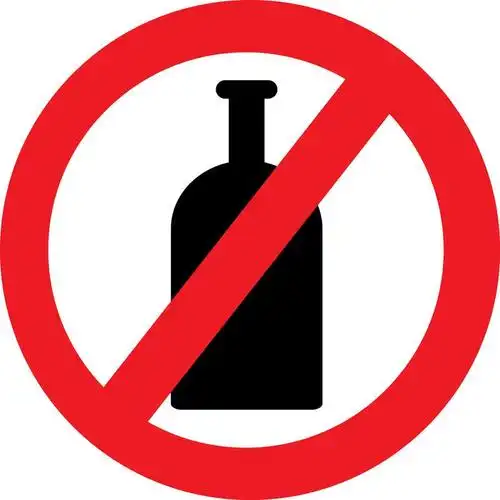Jet lag is an unavoidable reality for frequent travelers and occasional vacationers alike. The fatigue, disorientation, and general sense of being "off" can put a damper on any trip. Many travelers turn to a glass of wine or a cocktail during or after a flight, believing it might help them relax or even sleep. However, mounting evidence suggests that alcohol consumption while experiencing jet lag can significantly worsen symptoms and delay the body's adjustment to new time zones.
Understanding Jet Lag and Its Impact on the Body
Jet lag occurs when the body's internal clock, or circadian rhythm, is out of sync with the external environment. This internal clock regulates essential functions such as sleep patterns, hormone release, and body temperature. Long-haul flights that cross multiple time zones disrupt this rhythm, leading to symptoms like insomnia, daytime fatigue, difficulty concentrating, and even digestive issues.
The severity of jet lag depends on several factors, including the number of time zones crossed, the direction of travel, and individual susceptibility. Eastward travel generally causes more pronounced jet lag than westward travel because it requires the body to advance its internal clock, which is naturally harder for most people.
How Alcohol Exacerbates Jet Lag Symptoms
Alcohol is often mistakenly viewed as a relaxant or sleep aid. While it may help some people fall asleep faster, its overall impact on sleep quality and circadian rhythm is overwhelmingly negative. Here’s how alcohol worsens jet lag:
1. Disruption of Sleep Architecture Although alcohol can induce drowsiness, it severely disrupts the sleep cycle. It reduces rapid eye movement (REM) sleep, which is critical for cognitive functions like memory consolidation and emotional regulation. During jet lag, when sleep is already fragmented and less restorative, alcohol further degrades sleep quality, leaving travelers even more fatigued upon waking.
2. Dehydration and Its Effects Air travel is inherently dehydrating due to low humidity levels in airplane cabins. Alcohol is a diuretic, meaning it increases urine production and contributes to dehydration. Dehydration amplifies jet lag symptoms such as headaches, dry skin, and fatigue, making it harder for the body to recover.
3. Interference with Circadian Rhythm Adjustment The body relies on environmental cues like light and meal times to reset its internal clock. Alcohol interferes with the production of melatonin, a hormone that regulates sleep-wake cycles. By disrupting melatonin release, alcohol slows down the adaptation process to a new time zone.

4. Impact on Cognitive Function Jet lag already impairs cognitive performance, including attention, memory, and decision-making. Alcohol exacerbates these issues, increasing the risk of poor judgment and accidents. For business travelers or those who need to be alert upon arrival, combining alcohol with jet lag can be particularly detrimental.
5. Gastrointestinal Distress Jet lag often causes digestive discomfort, as the body’s timing for hunger and digestion is thrown off. Alcohol irritates the stomach lining and can lead to acid reflux, bloating, and other gastrointestinal issues, compounding existing problems.
The Benefits of Quitting Alcohol for Faster Recovery
Eliminating alcohol during travel and the initial adjustment period can significantly speed up recovery from jet lag. Here’s why:
1. Improved Sleep Quality Avoiding alcohol allows the body to experience more restorative sleep. With better sleep architecture, travelers wake up feeling more refreshed and energized, enabling them to engage more fully in their new environment.
2. Enhanced Hydration Staying hydrated is crucial for mitigating jet lag. By opting for water, herbal teas, or electrolyte drinks instead of alcoholic beverages, travelers can combat the dehydrating effects of air travel and reduce symptoms like headaches and fatigue.
3. Faster Circadian Realignment Without alcohol interfering with melatonin production, the body can more efficiently adjust to new light-dark cycles. Exposure to natural sunlight during the day and avoiding screens at night further supports this process.
4. Better Cognitive and Physical Performance Travelers who avoid alcohol report clearer thinking, improved mood, and higher energy levels. This is especially important for those who need to hit the ground running, whether for business or leisure.
5. Reduced Gastrointestinal Issues A alcohol-free diet gives the digestive system a chance to adapt to new meal schedules without additional stress from irritants like alcohol. This can help alleviate bloating, indigestion, and other common travel-related stomach problems.
Practical Tips for Avoiding Alcohol and Managing Jet Lag
Quitting alcohol, even temporarily, can be challenging, especially when flying often involves complimentary drinks or social pressure. Here are some practical strategies to avoid alcohol and minimize jet lag:
- Plan Ahead: Before your flight, set an intention to avoid alcohol. Mentally preparing yourself makes it easier to decline offers politely.
- Stay Hydrated: Bring a reusable water bottle and refill it after security checks. Herbal teas like chamomile or peppermint can be relaxing alternatives.
- Opt for Mocktails: Many airlines and airports now offer sophisticated non-alcoholic beverages. Try a sparkling water with lime or a alcohol-free cocktail to feel included without the negative effects.
- Follow Local Time: As soon as you board the flight, adjust your watch to the destination time zone. Try to sleep and eat according to the new schedule.
- Use Natural Light: Upon arrival, spend time outdoors in natural sunlight to help reset your internal clock.
- Consider Supplements: Melatonin supplements can be helpful for some travelers, but consult a healthcare professional before use.
Conclusion
While it might be tempting to unwind with a drink during a long flight or after arriving at a new destination, alcohol ultimately prolongs the discomfort of jet lag. By understanding how alcohol disrupts sleep, dehydrates the body, and interferes with circadian adjustment, travelers can make informed choices that promote faster recovery. Quitting alcohol, even temporarily, is a simple yet powerful step toward minimizing jet lag symptoms and making the most of any journey.




发表评论